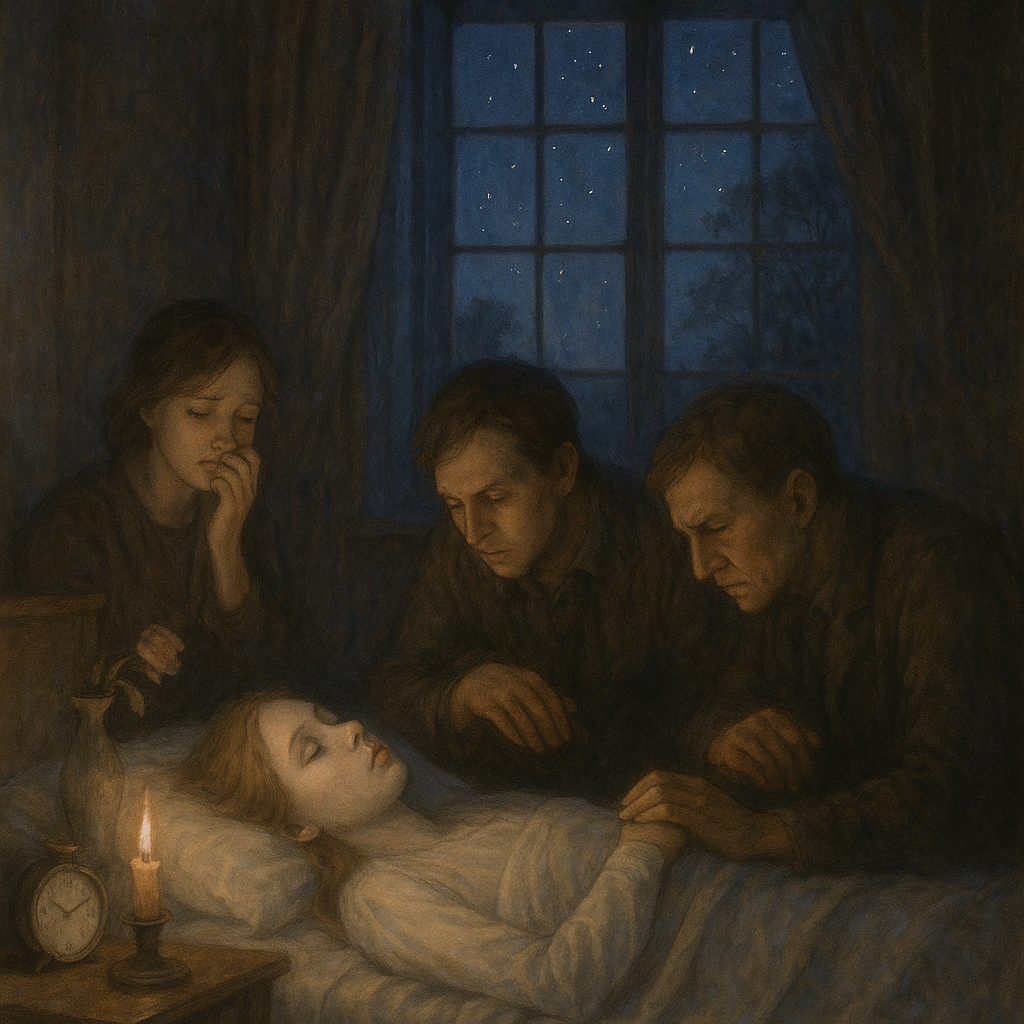The last night that she lived,
It was a common night,
Except the dying; this to us
Made nature different.
We noticed smallest things,—
Things overlooked before,
By this great light upon our minds
Italicized, as ‘t were.
That others could exist
While she must finish quite,
A jealousy for her arose
So nearly infinite.
We waited while she passed;
It was a narrow time,
Too jostled were our souls to speak,
At length the notice came.
She mentioned, and forgot;
Then lightly as a reed
Bent to the water, shivered scarce,
Consented, and was dead.
And we, we placed the hair,
And drew the head erect;
And then an awful leisure was,
Our faith to regulate.






